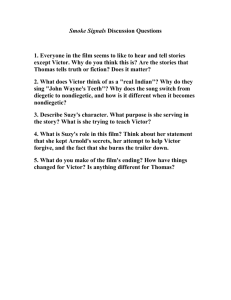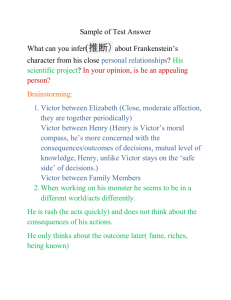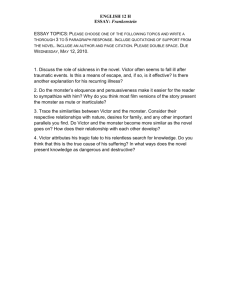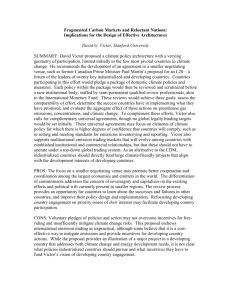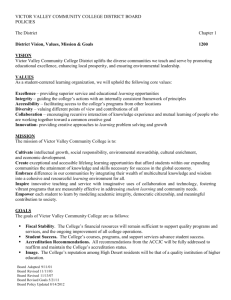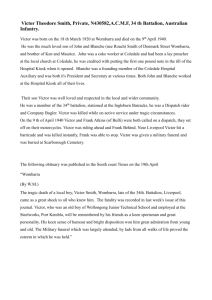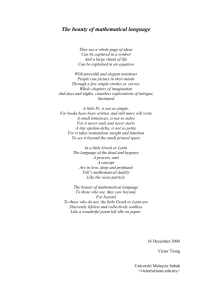Frankenstein Discussion Questions Chapters 17-24 Chapters 17
advertisement
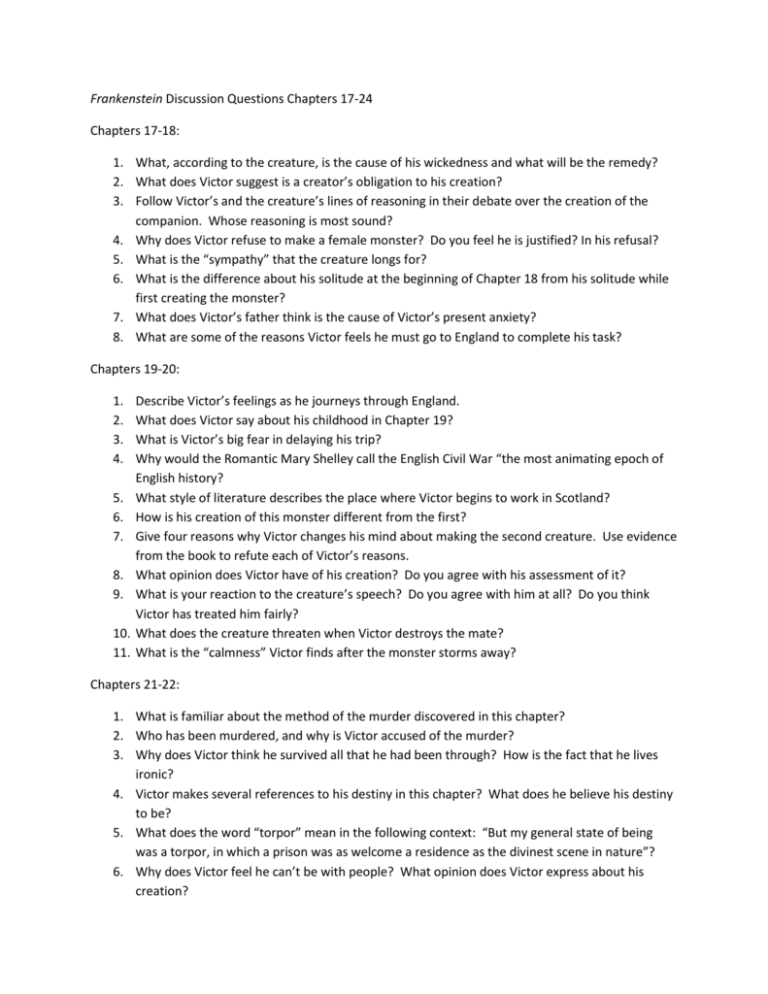
Frankenstein Discussion Questions Chapters 17-24 Chapters 17-18: 1. What, according to the creature, is the cause of his wickedness and what will be the remedy? 2. What does Victor suggest is a creator’s obligation to his creation? 3. Follow Victor’s and the creature’s lines of reasoning in their debate over the creation of the companion. Whose reasoning is most sound? 4. Why does Victor refuse to make a female monster? Do you feel he is justified? In his refusal? 5. What is the “sympathy” that the creature longs for? 6. What is the difference about his solitude at the beginning of Chapter 18 from his solitude while first creating the monster? 7. What does Victor’s father think is the cause of Victor’s present anxiety? 8. What are some of the reasons Victor feels he must go to England to complete his task? Chapters 19-20: 1. 2. 3. 4. 5. 6. 7. 8. 9. 10. 11. Describe Victor’s feelings as he journeys through England. What does Victor say about his childhood in Chapter 19? What is Victor’s big fear in delaying his trip? Why would the Romantic Mary Shelley call the English Civil War “the most animating epoch of English history? What style of literature describes the place where Victor begins to work in Scotland? How is his creation of this monster different from the first? Give four reasons why Victor changes his mind about making the second creature. Use evidence from the book to refute each of Victor’s reasons. What opinion does Victor have of his creation? Do you agree with his assessment of it? What is your reaction to the creature’s speech? Do you agree with him at all? Do you think Victor has treated him fairly? What does the creature threaten when Victor destroys the mate? What is the “calmness” Victor finds after the monster storms away? Chapters 21-22: 1. What is familiar about the method of the murder discovered in this chapter? 2. Who has been murdered, and why is Victor accused of the murder? 3. Why does Victor think he survived all that he had been through? How is the fact that he lives ironic? 4. Victor makes several references to his destiny in this chapter? What does he believe his destiny to be? 5. What does the word “torpor” mean in the following context: “But my general state of being was a torpor, in which a prison was as welcome a residence as the divinest scene in nature”? 6. Why does Victor feel he can’t be with people? What opinion does Victor express about his creation? 7. 8. 9. 10. 11. 12. What is ironic about the desires of Victor and the creature? Why does Victor decide to marry Elizabeth immediately? In what ways does Elizabeth restore the Romantic Victor? What do you think will happen on Victor and Elizabeth’s wedding night? How does Shelley build suspense in these chapters? What evidence is there to suggest what the creature really means by his threat to be with Frankenstein on his wedding night? Chapters 23-24: 1. When does it finally occur to Victor that he has foolishly misinterpreted the creature’s threat? 2. How does the monster react to his murdering Elizabeth? 3. What does the word “acme” mean in the following context: “Mine has been a tale of horrors; I have reached their acme, and what I must now relate can but be tedious to you”? 4. What is different about Victor’s reaction to Elizabeth’s (and his father’s) death from the rest? 5. Victor, in his anger, says to the magistrate, “How ignorant art thou in thy pride of wisdom.” What is the irony in this? 6. In Chapter 20, Victor says his calmness is brought by despair. At the beginning of Chapter 24, he says his calculating revenge brings him calm. What does this change say about his character after the deaths of his wife and father? 7. What does the creature want Victor to do now? How does that show a difference in the creature’s character from the point when he wanted a companion? 8. Consider Victor’s statement: “When I reflected on the work I had completed, no less a one than the creation of a sensitive and rational animal, I could not rank myself with the herd or common projectors . . . All my speculations and hopes are as nothing; and, like the archangel who aspired to omnipotence, I am chained to eternal hell.” How does this establish Victor as a tragic hero? 9. On his deathbed, Victor admits that he had an obligation to make sure his creature had a happy life. What is ironic about the excuse he offers for not doing so? 10. How does the end of the novel justify the concentric levels of narration introduced at the beginning? 11. How does the inclusion of Captain Walton affect the overall meaning of the book? 12. Explain how Victor is similar to a tragic hero. 13. Explain how Victor is similar to a romantic hero. 14. How does Victor depart from the typical tragic hero?
